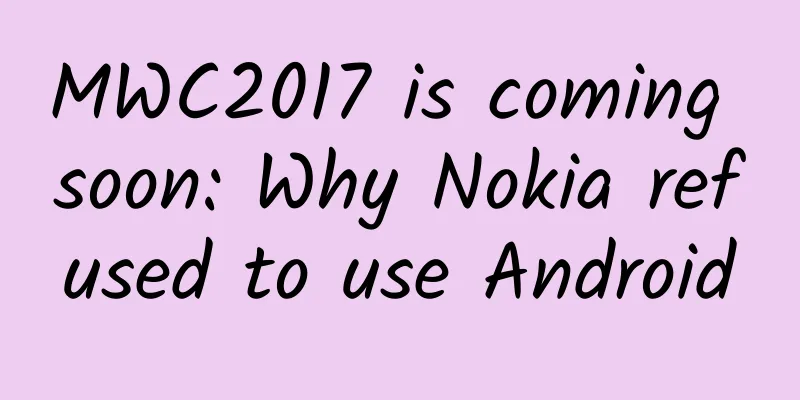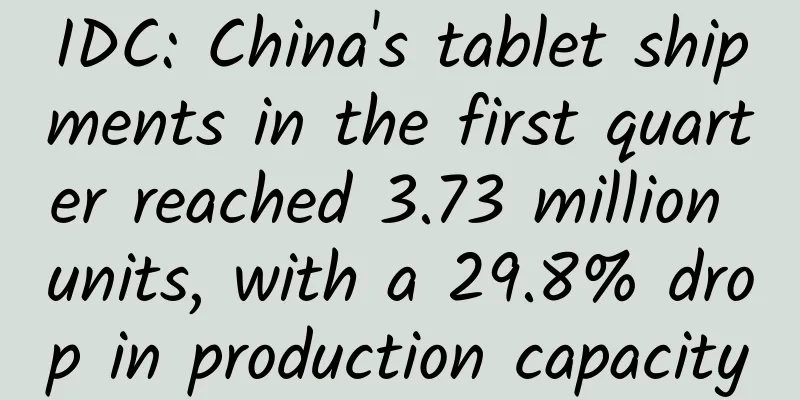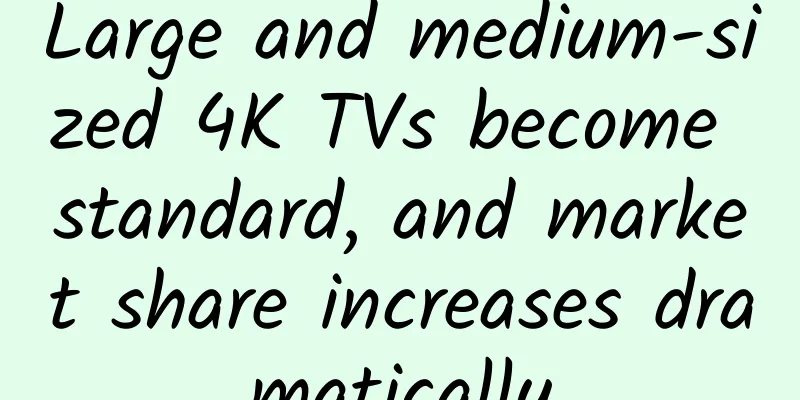MWC2017 is coming soon: Why Nokia refused to use Android

|
Last month's CES2017 had at least one big piece of news for nostalgic fans: Nokia finally returned, even though only the five letters NOKIA actually returned, and the manufacturer behind it is HMD. So here comes the question, as we all know, the so-called return Nokia 6 is an Android model, but Nokia back then would never use Android (except for the late Nokia X), so why did they do it in the first place if they knew this would happen? Of course, first of all, I have to explain that for Nokia, the key to switching camps was 2009-2010. At that time, I was still in school and didn’t know any old employees who could reveal some internal information at that time. The following content is summarized by analyzing Nokia and its competitors at that time, as well as public information in the market. The pictures in this article are from the Internet, and tributes to the relevant copyright holders. Point 1: Nokia overestimated itself Now, this view must be accepted. History proves that since the rise of iPhone, Nokia has been on the decline. However, if we really push the timeline back 7 years, how many people would think so? Very few people think that at that time, whether it was market share or product reputation, there was no doubt that Nokia was still the king. At most, it was just not as buggy as in previous years. Old drivers can recall the importance of Nokia when you bought models in 2009-2010. We can naturally believe that Nokia itself also believed that it was the thigh of the mobile phone industry. At most, it was just prepared for danger in times of peace. It would never have thought that it would have to sell itself to Microsoft just a few years later. From this perspective, we can understand Nokia's actual choice: Since Nokia is a big player, why would it go to the Android camp to cling to Google's thigh? Even if it used Android, at that time, the Android camp at least had HTC, which was the founding manufacturer and was considered by consumers to be the authentic Android, and Samsung, which had deep roots in the supply chain. Neither of them would necessarily be inferior to Nokia. So what difference would Nokia, which regarded itself as the king, "marrying" Google, be like a salted fish? Whether it was rescuing Symbian, developing Meego, or turning to Windows Phone, Nokia would still be the world's number one if it succeeded, so naturally Nokia would be more inclined to the latter three paths. Of course, if it fails later, it will be a dead fish, even worse than salted fish, and this is indeed the case. As for what would have happened if Nokia had "turned from darkness to light" at that time, we can also refer to the similar trajectory of its old rival Motorola. Under the severe impact of domestic manufacturers after 2011, it was not easy for it to survive. Point 2: Nokia underestimated the power of Android and Google So what did Nokia actually do? They thought they were strong, so they did it both ways, rescuing Symbian and developing Meego. They might have even started to contact Microsoft. In short, they didn't focus on one direction. It's not easy to directly discuss the pros and cons of this approach. Obviously, it was the result of internal compromise. We can first look at the outside and see what Google did at the time. Google released Android 1.5 in May 2009, and T-Mobile G1, or HTC Dream, was the first practical model to be launched half a year earlier. Less than a year later, in January 2010, Android 2.1 was released, and the system itself was already perfected and the work of optimizing the UI design began. At that time, Google's development speed was described as a record, with a new version released every two and a half months on average, and manufacturers followed up very quickly. Well-known classic models such as MOTO Milestone and HTC Desire were released no later than February 2010. What was Nokia's development progress at that time? Symbian 3, which was launched to save the market, was launched at MWC2010, which was already a long way behind (Nokia officially claimed that it was 4 months ahead of schedule), and the actual mobile phone launch was not until the summer of the N8, which was undoubtedly behind the times and inevitable failure, not to mention Meego, which took half a day to open the installation package, and the only model N9 was launched a year later. So Nokia paid a heavy price for its arrogance. Of course, now it seems that even if Nokia concentrates its firepower, its development capabilities can hardly match those of Google, a software giant, not to mention that Google was cheating at that time. Point 3: Too much resistance within Nokia The above is actually external, either Nokia himself did not judge the situation well, or did not understand the opponent well enough. In fact, there must be strong resistance within Nokia. We can talk about this from the perspective of software and hardware. In terms of software, many people always regard Nokia as a hardware manufacturer. In fact, Nokia has two killer weapons in software, one is the Symbian Foundation (the ownership of the Symbian system) it acquired previously, and the other is the Ovi service system. Unfortunately, if it turns to Android, these two will be a burden. First of all, Symbian, as another system, will not be integrated into the Android system. In terms of the UI interaction that can be customized by manufacturers, Symbian itself has nothing to recommend it. After switching to Android, all of Symbian's assets, whether it is people or code resources, will become bad debts. The jobs of related employees will also be greatly threatened by reality. They will inevitably oppose it. And considering its size, the impact within Nokia must be great. As for Ovi, it's the same reason. While Google is promoting Android, it is also promoting its own Google services. At that time, even China had not blocked Google. If a manufacturer wants to become a mainstream manufacturer in the camp, it must be built-in, which will inevitably cause conflict with Ovi. For Nokia, it is like nurturing a tiger to harm itself. As a department that Nokia is proud of, Ovi will definitely oppose Google and naturally prevent Nokia from switching to Android. As for hardware, Nokia has dug a deep hole for itself over the years. Even before the emergence of Android, when Symbian and Windows Mobile were competing, Nokia's hardware configuration was simply not comparable to the other side. The supply chain system centered around the ancestral ARM11 processor and the highest resolution 640*360 screen made it live in the closed greenhouse of Symbian. However, Android is undoubtedly the successor of WM in terms of hardware. Nokia's shift to Android means starting over from scratch with the entire hardware supply system, otherwise it will not even be as good as a 100-yuan phone. In this way, not only will the partner network that has been operating for many years collapse instantly, but even the jobs of the procurement department employees may not be saved, so opposition is necessary. Of course, these people did not expect that Nokia would really die after such a toss. In other words, it is just like the old saying that a small boat is easy to turn around, and a barefoot person is not afraid of a person wearing shoes. Nokia looks powerful, but its wealth has become a cage. Of course, apart from Symbian, Nokia finally found a partner who was willing to treat Ovi as a treasure, that is, Microsoft, but everyone knows the result. In short, the fait accompli is a commemoration, and at most it is a lesson for the past. As for the new Nokia, although its first comeback was not very sincere, we still have to wish it well. MWC2017 is just around the corner, and there have been previews before. Let's wait and see if there is any big news. As a winner of Toutiao's Qingyun Plan and Baijiahao's Bai+ Plan, the 2019 Baidu Digital Author of the Year, the Baijiahao's Most Popular Author in the Technology Field, the 2019 Sogou Technology and Culture Author, and the 2021 Baijiahao Quarterly Influential Creator, he has won many awards, including the 2013 Sohu Best Industry Media Person, the 2015 China New Media Entrepreneurship Competition Beijing Third Place, the 2015 Guangmang Experience Award, the 2015 China New Media Entrepreneurship Competition Finals Third Place, and the 2018 Baidu Dynamic Annual Powerful Celebrity. |
Recommend
Manhole covers "eat people" again? Safety under your feet cannot be ignored!
Around 21:00 on May 12, a 3-year-old boy accident...
Understand the growth gossip model of user operations in one article!
The Growth Gossip Model can be described in one s...
Why can’t I sneeze when I want to, but can sneeze when I look at the sun?
For many years, I always thought that I possessed...
Mobei Class 6th Foreign Trade SEO Optimization Promotion Google SEO (Google SEO)
Mobei Class 6th Foreign Trade SEO Optimization Pr...
How should a designer with zero foundation learn front-end
How can non-professional designers learn front-en...
Snoring is really annoying! Is there any way to wake him up without hurting his feelings?
Regarding snoring, we have the same questions as ...
How do college entrance examination candidates fill in their application forms? How to fill in the college entrance examination application form to increase the admission rate?
After the college entrance examination results ar...
It took me 300 million yuan to learn the secrets of information flow copywriting!
I am different from other optimizers because I wo...
Why are there these two extremes of “drought kills people, flood kills people”?
Audit expert: Zhan Mingjin President and Professo...
How to find the most click-through creative ideas in Sogou bidding promotion background?
With the development of the advertising and marke...
A 5-yuan tea drink is actually a magical skin care product that can remove acne and whiten your skin? The truth...
Recently, a drink you may have drunk has become a...
Detailed explanation and implementation methods of three types of timers in Android
[[171357]] This article mainly introduces the kno...
Brand Marketing: How to make your Internet brand “seen”?
Internet brands frequently do things offline, inv...
November 2023 "Science" Rumors List: Can you change the medicine for treating mycoplasma pneumonia yourself? Is skim milk healthier?
1. You can change the medicine by yourself for th...
Private domain traffic marketing promotion guide!
Some ideas on drainage channels and soft article ...









